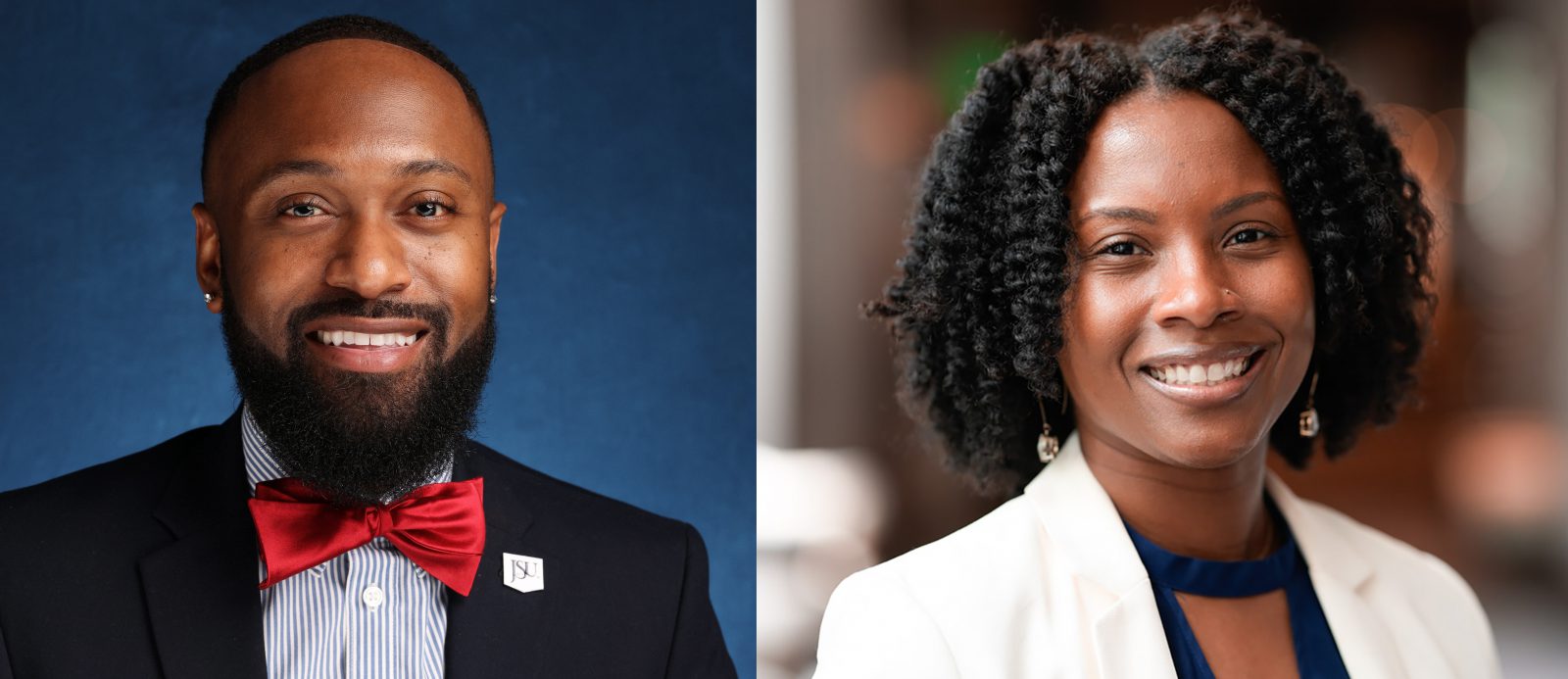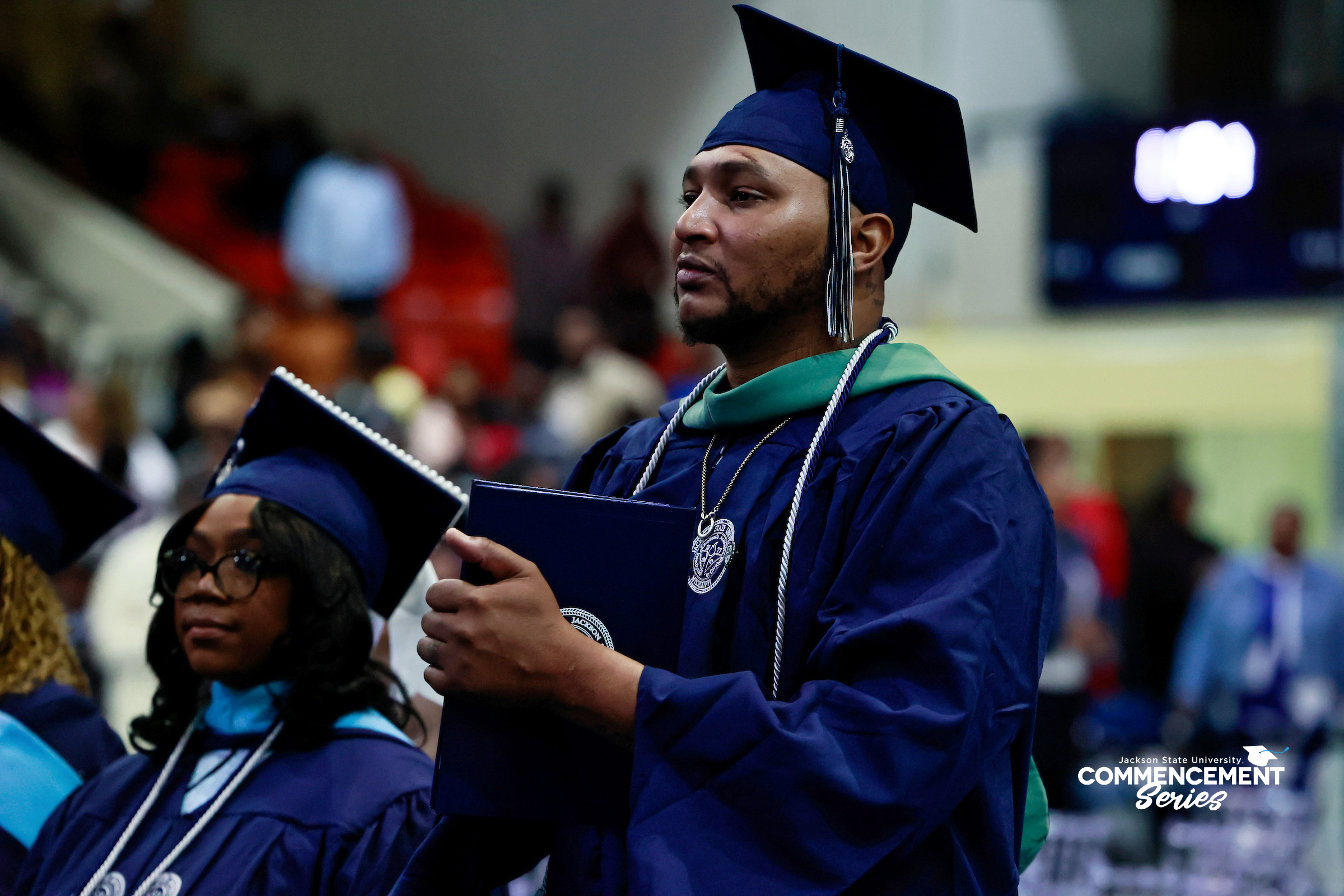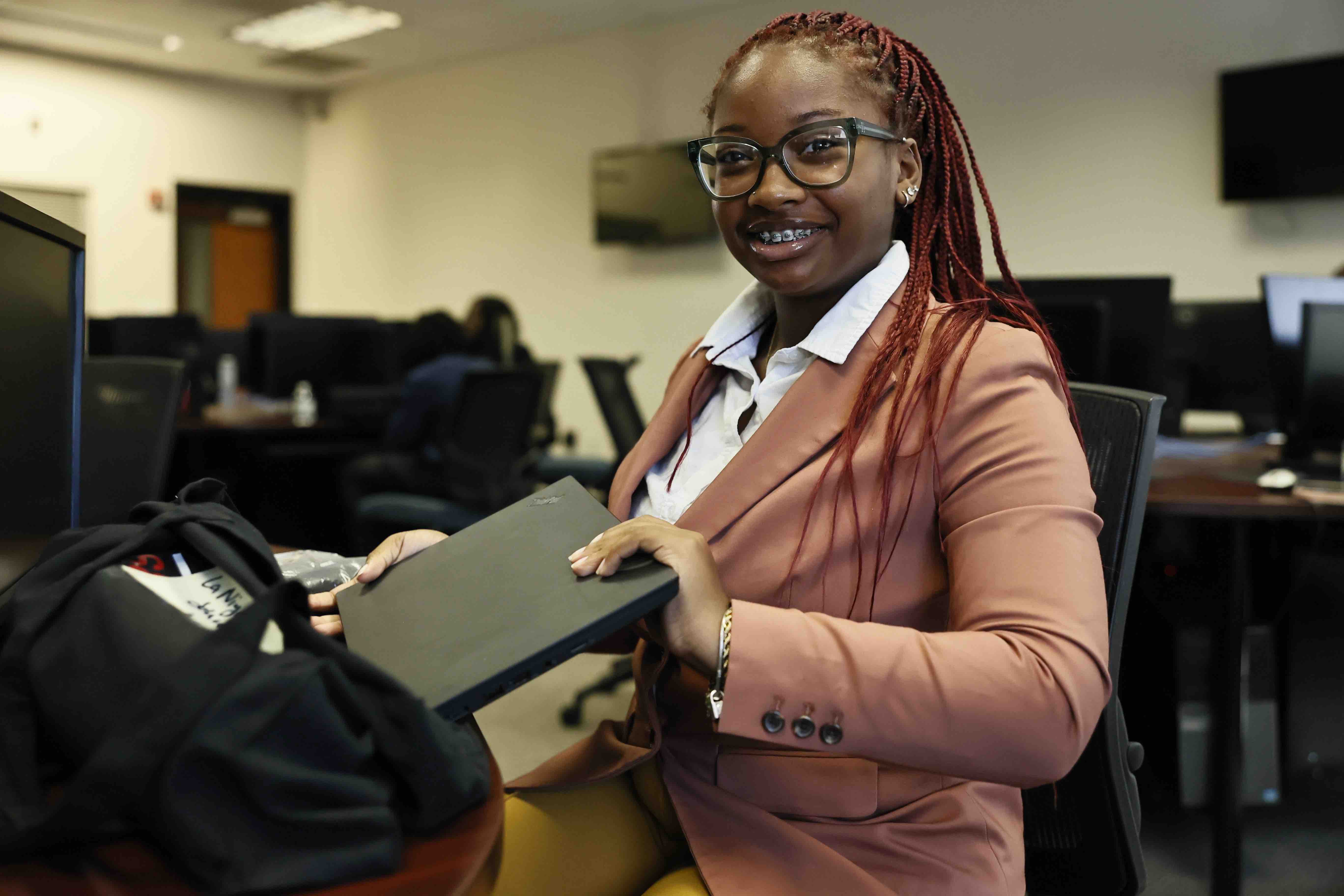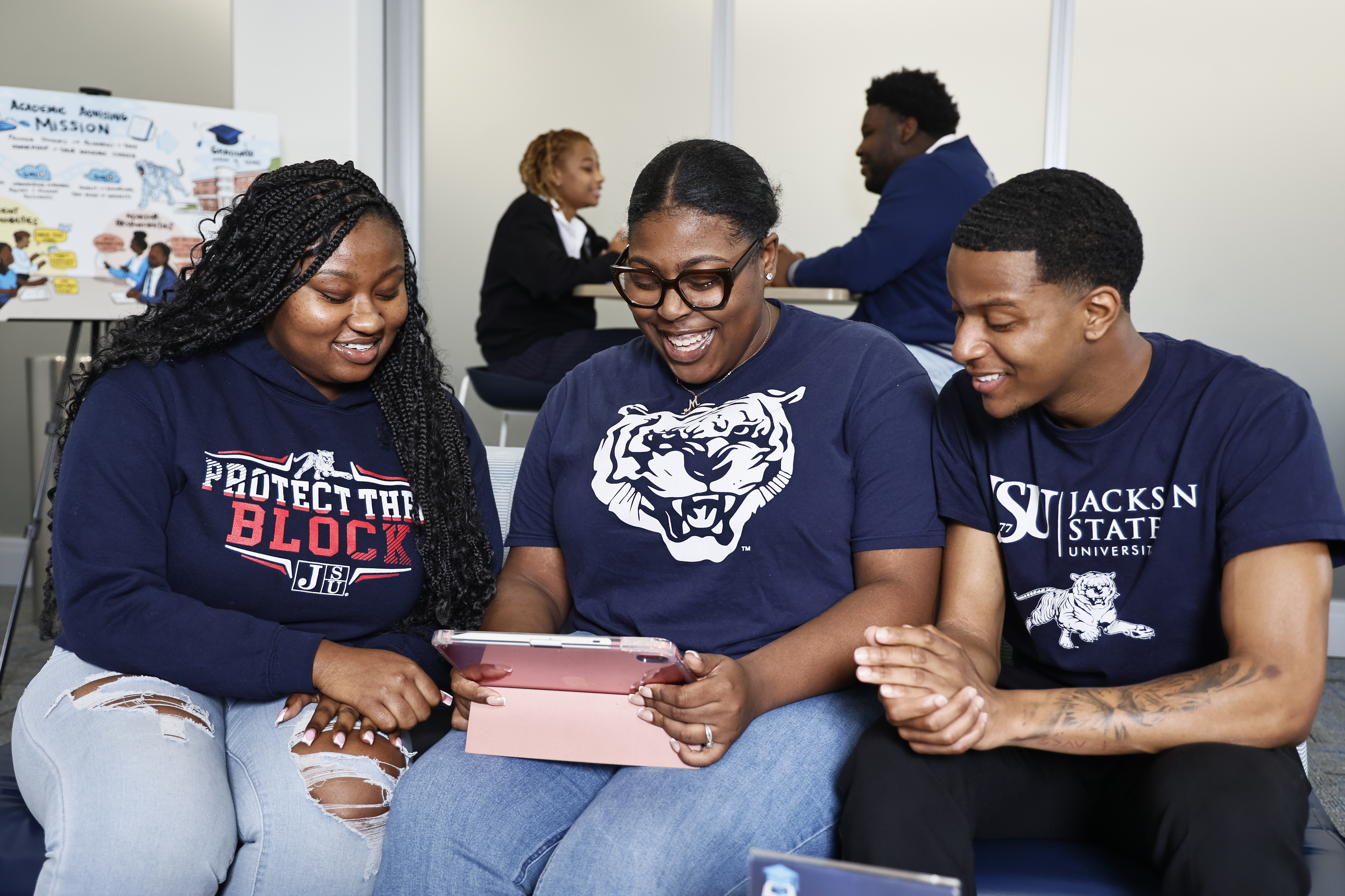Leaders in enrollment and academic advisement at Jackson State University are stepping into the national conversation on how to ensure the long-term sustainability of Historically Black Colleges and Universities (HBCUs).
Chosen from a competitive pool of over 400 applicants nationwide, Kylon Alford-Windfield, vice president for enrollment management, and Galina Bennett, Ph.D., director of the University Academic Advisement Center, were selected as fellows for the convening at Claflin University in South Carolina. This year’s theme, “Ideation. Innovation. Collaboration. II: Creating a Blueprint for Sustainability and Self-Agency for HBCUs,” centers on building a strategic framework for the future of HBCUs.
Alford-Windfield was among the event’s featured panelists, offering insight on enrollment strategies, institutional resilience and student success.
“My goal was to spark bold conversations about innovation and inspire leaders to adopt strategies that are both scalable and rooted in the unique strengths of our institutions,” said Alford-Windfield. “I focused on the urgent need for HBCUs to take a more integrated, data-informed approach to enrollment management that connects recruitment, financial aid, academic advising and retention strategies.”
Alford-Windfield and Bennett joined a distinguished group of 85 practitioners and 40 institutional leaders in a joint effort to tackle challenges in enrollment, academic affairs and finance at HBCUs. The discussion was organized by the Center for the Study of HBCUs at Virginia Union University, UNCF, the Payne Research Center at TMCF and the Heman Sweatt Center for Social Good and Leadership at Wiley University.
The convening focused on intentional collaboration across institutional units, these higher-ed professionals sought to reinforce the value of using predictive analytics in steering strategic enrollment and retention plans. Jackson State University’s voice in national conversations shaping the future of HBCUs demonstrates the institution’s drive for innovation.
“Being present at the table reinforced our commitment to continuous improvement and to securing the long-term success of our students and institution,” Bennett said. “For JSU, this means taking back a clearer sense of direction, establishing cross-campus partnerships and contributing to a network of HBCUs working toward sustainable success.”
The intended outcome of the convening is to develop a shared framework of actionable strategies that participating institutions can use to achieve measurable progress in enrollment growth, financial health and student outcomes. Thought leaders also emphasized student-centered models that prioritize wraparound support and high-impact practices to enhance persistence and graduation rates.
“One of my key takeaways was the urgent need for HBCUs to adopt a more integrated and data-informed approach to address enrollment trends, financial resilience, and student success,” added Bennett.








